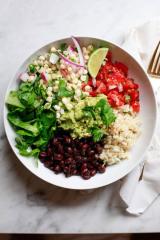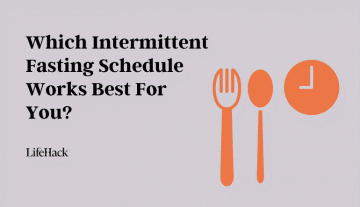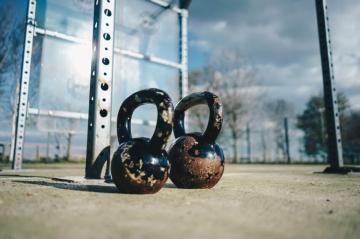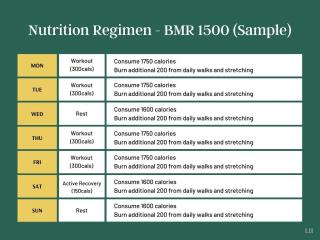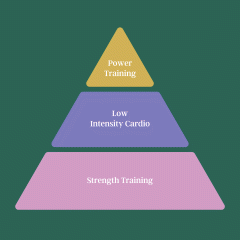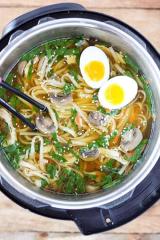Inflammation. You may hear that word and think of inflamed muscles or sprained ankles. Maybe you think of an anti-inflammatory capsule you always have on hand in your medicine cabinet. Or maybe you think of arthritis and problems you don’t yet have. But inflammation can happen to anyone.
Inflammation is not infection. In fact, inflammation is a good thing your body does in an attempt to protect itself. When something irritating or even dangerous affects a part of your body, there is a biological response to fight it. This is done through inflammation. That swelling you’ve seen when you blow out your ankle or a knee may look scary (and sometimes really, really bad), but it’s actually the result of your body releasing white blood cells into your blood and other affected tissues. The sudden release of cells increases blood flow to the damaged area, thus causing some redness and warmth.
What does inflammation feel like?
While it may seem counter-intuitive, inflammation can be a bit painful. Everyone experiences it differently, so for some it’s more of a discomfort, while others undergo stiffness and pulsating, pinching sensations. Inflammation causes this pain because the swelling can push against nerve endings telling your brain something hurts. In a bizarre fact, we’re pretty much in pain all day long (as far as our nerve endings are concerned), but our brain chooses to ignore those signals. However, inflammation is a unique pain that differs from what we feel 24/7. Therefore, we are more sensitive toward it.
Inflammation can be detrimental if occurring too often
Inflammation not only occurs when we do something like twist an ankle or wrist or land wrong on a knee or elbow, it can also occur if we are unhealthy.
In a recent study, researchers found that overweight men are at greater risk of inflammation than men of the same age who are more fit. This was largely due to unfit men having a higher white blood cell count than healthier men. For women, inflammation drops when they lose weight. A different study found that obese women who lost more than 5% of their body weight had lower levels of inflammation markers.
While inflammation can help a body heal, it has a time and place. That means if we are unhealthy and causing our bodies to become inflamed regularly, we can be at risk for several types of cancer and even heart disease.
Perhaps most shocking, if inflammation is occurring so often that it becomes a part of your every day life, it can lead to hyperactive healing that can damage tissues and even result in chronic inflammation. If inflammation becomes a chronic issue, your immune system begins to go into overdrive. Once this happens, inflammation can kill bad cells all the time, sure, but it can also begin to kill off the good, healthy cells. When this happens, inflammation can become a killer. In fact, medical experts trace it to 90% of all serious illnesses as well as autoimmune disorders and arthritis, diverticulitis and cystitis.
Your food may be causing your inflammation!
While it can seem overwhelming to try to get all the vitamins, minerals, vegetables and water servings into our hectic daily lives, some of the things we snack on out of habit can actually be leading to inflammation and ultimately, diseases! Here are some things to avoid to protect yourself from unhealthy inflammation levels:
Dairy
Here’s the thing, humans don’t need milk. Nature made milk for calves. Are you a baby cow? No. Calves need milk in order to gain weight quickly. Last I checked, most of us aren’t trying to gain weight, and even if we are, that milk we buy in stores usually doesn’t come straight from the udder.
Now I know what you’re thinking: “But milk makes our bones strong! We do need it!”
Wrong.
Bone strength doesn’t come from milk or any other dairy product. In fact, we get that bone strength from plants! Dairy is highly inflammatory for most people, and drinking more processed milk (skim) actually makes the inflammation even worse.
Still not convinced? In 1994, a study showed that consuming dairy products, even at a young age, was associated with an increased risk of hip fracture later in life.
French Fries
I hate to be the bearer of bad news, but french fries are just plain bad for you. Well really, all fried foods are bad for you. While we all know they have a bad habit of making us gain weight (despite how incredibly yummy they can be!), if we cut out fried foods, we cut out inflammation.
One study found that feeding people a bag of potato chips (fried food) every day for a month highly increased inflammation and even their risk of cancer.
Doughnuts
Okay, so clearly if we follow a diet full of anti-inflammatory foods, we’re probably going to lose weight. But why can’t doughnuts just be good for me?!
Doughnuts are on the list of no-no’s because they contain refined flour and way more sugar than our body ever asked for. Oh, and while you’re at it, stop eating cookies cakes and…basically all sweet, delicious things. Ugh.
One 2004 study showed people who ate too many refined carbs (like doughnuts) not only increased their risk of inflammation, but they were also at an increased risk of obesity and even diabetes.
Bacon
Put down the maple-bacon glazed doughnuts. Bacon is also horrible for you (for a few reasons, but let’s focus on inflammation). Saturated fat, when heavily processed, contributes to inflammation. This goes for hot dogs and bologna, too.
Along with increased inflammation, a study conducted by Columbia University found direct correlation between eating processed and cured meat such as bacon and developing chronic pulmonary disease.
(Too much) Alcohol
A glass of wine a day has been shown to be beneficial, but too much of a good thing can lead to chronic inflammation. The process of breaking down alcohol creates toxic by-products in our bodies which can damage liver cells, promote inflammation and weaken our immune system. The term ‘Drink responsibly’ has never felt so appropriate.
Studies have shown that drinking to the point of drunkenness can cause your body to have trouble producing cytokines (the things that ward off infections by causing healthy inflammation). Without these, your body develops a reduced ability to fight off infections.
The right diet can lead to anti-inflammatory benefits
While it may seem easy enough to grab a bottle of anti-inflammatory capsules, there are plenty of foods which offer anti-inflammatory benefits naturally.
1. Tomatoes
While you can’t have a BLT (remember, we are cutting out that bacon!), you can have tomatoes!
Tomatoes are a nightshade vegetable rich in lycopene which helps reduce inflammation in the lungs and body. Cooked tomatoes are even better for you, so tomato sauce can count as a healthy addition to your diet. A 2013 Iranian study found that tomato juice was beneficial for reducing systematic inflammation. So drink up, but not too much. A serving of tomatoes is 1 cup chopped or sliced.
Try This:
Healthy Tomato Cucumber Avocado Salad
This salad is filled to the brim with healthy, anti-inflammatory goodness. And it only takes 10 minutes to make! Enjoy.
2. Ginger and Turmeric
Various studies have shown that these spices hold anti-inflammatory properties. Add a pinch of either (about 500 mg) to your daily smoothie for part of a healthy diet. Turmeric helps the body to turn off NF-kappy B, a compound that triggers inflammation. Ginger can cut inflammation in the gut when taken as a supplement.
Try This:
Anti-Inflammatory Turmeric Ginger Tea
This tea can help relieve pain and inflammation while also aiding joint pain and arthritis.
3. Kale
Kale is rich in anti-inflammatory goodness, as well as anti-cancer nutrients. It also works as an anti-inflammatory. Snack on one cup of chopped kale for a healthy, anti-inflammatory break. Research has shown that kale contains nearly 50 different types of flavonoids which boast anti-inflammatory effects.
Kale and other leafy veggies boast Vitamin K, Vitamin A, and Vitamin C.
Try this:
Sauteed Kale
Not only is this dish excellent for you, it’s also delicious. Enjoy it as a side or eat a bowl full!
4. Celery
Studies have proven celery is great because it contains antioxidant and anti-inflammatory properties. Celery seeds also have impressive health benefits including lowering inflammation and fighting infection.
Celery also has Vitamins K, A, C and Potassium. Just one and a half stalks provide all the goodness you need in a day.
Try This:
Braised Celery
Vegetarian, gluten-free and paleo, this braised celery is good for you on so many levels.
5. Blueberries
Studies have shown consuming more blueberries slowed cognitive decline and actually improved memory and motor function. Blueberries are full of antioxidants which protect the body and reduce inflammation.
Blueberries also have Vitamins K and C as well as Manganese. Aim for 1/2 a cup to reap the benefits.
Try This:
Blueberry Banana “Ice Cream”
Eating well doesn’t have to be boring. This two ingredient “ice cream” is so good for you, but it tastes so sweet!
6. Salmon
Salmon has fatty acids that are quintessential to a healthy lifestyle. They also boast omega-3 fatty acids which reduce inflammation. Salmon is basically a health powerhouse, as it also contains Vitamins B12, D, B3, B6, Selenium, Protein and Phosphorous. Enjoy 2 to 3 ounces for all the health benefits.
Try This:
Grilled Salmon with Avocado Salsa
Wow, wow, wow. This recipe has so many health benefits!! This is a delicious dinner you don’t have to feel guilty about.
7. Coconut Oil
Image Source
Coconut oil is basically a miracle in a jar. You can put this stuff on your body, in your hair and of course in your system. The lipids found in coconut oil are filled with anti-inflammatory properties. In fact, a study in India showed the high levels of antioxidants in coconut oil were more effective at healing arthritis and other inflammatory problems than leading medicines. While coconut oil is super good for you, it’s pure fat. So only enjoy about a teaspoon a day.
Try This:
Coconut Oil Smoothie
This smoothie has dairy-free milk, coconut oil, and good-for-you fruits. Drink up!
8. Walnuts
These little guys may not look like much, but they are filled with beneficial antioxidants and anti-inflammatory properties. They are also full of omega-3’s (about 113% of your daily value!) and manganese. Munch on 1/4 cup (about one ounce) of walnuts at a time.
Try This:
Raw Walnut Brownies
These brownies substitute all that bad-for-you refined sugar and flour with dates and cacao powder. Gluten-free, vegan, paleo and delicious!
9. Beets
Beets. You either love them or you hate them. But beets are the color they are because of the antioxidant betalain. This antioxidant is known to be a fantastic anti-inflammatory. They also have Folate, Manganese, Potassium and Magnesium. Enjoy one cup at a time.
Try This:
Beet, Carrot and Apple Salad
This is a bowl full of health , and you’ll actually look forward to eating it! The sweet carrots and apples balance out the earthy beets.
10. Bok Choy
Bok Choy has Vitamin K, A and C. Plus, studies have shown there are over 70 antioxidant types in this green veggie! A serving size of one cup only has about 20 calories, too!
Try This:
Sauteed Ginger Bok Choy
Yep, this recipe has ginger and bok choy! Talk about a healthy dish! Though it does call for soy sauce, opt for a low sodium option to avoid inflammation from the salt.
Pay attention to what your body is trying to tell you!
So now that you know some foods to avoid, as well as foods to integrate into your diet, try to pay attention to the changes in your body. You’ll notice less inflammation, but you may even notice better, more steady energy, a happier gut and even weight loss! Have any more anti-inflammatory foods you swear by? We’d love to hear about them.
Featured photo credit: Christina Rumpf via unsplash.com


